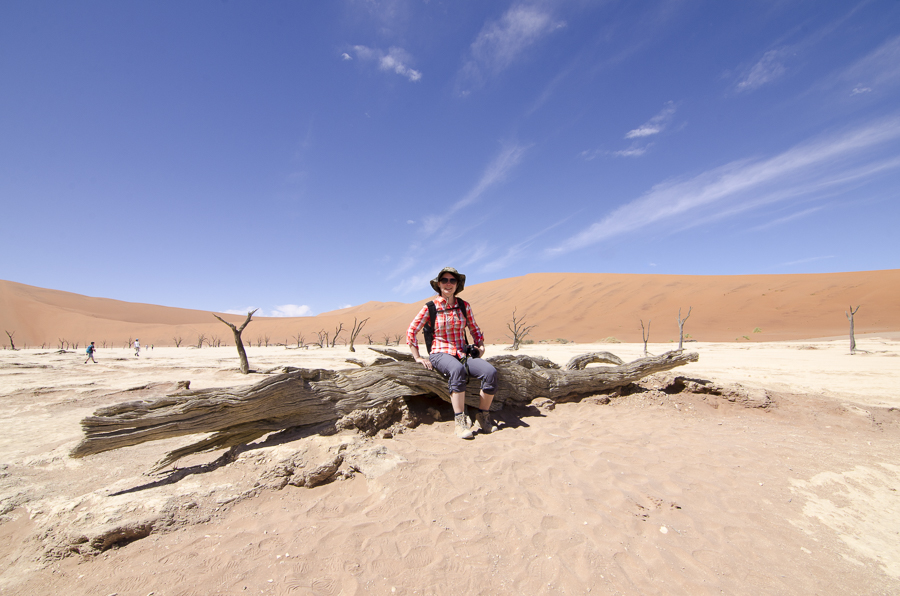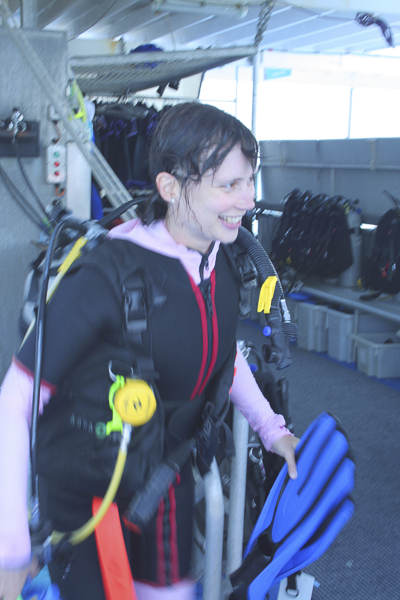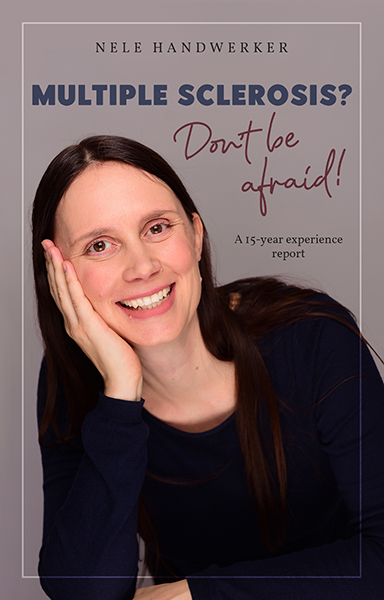Traveling with multiple sclerosis is not a problem as long as you pay attention to a few things and prepare well. Depending on the vacation destination and type of trip, more or less preparation is required. But don’t worry, you can visit all your dream destinations and make lots of wonderful memories. The following tips will help you.
Klicken Sie auf den unteren Button, um den Podcast zu laden.
Table of Contents
Choose your travel destinations according to your preferences
Perhaps one of your worries is that you can no longer travel because you have multiple sclerosis. You don’t have to. Since my diagnosis, I’ve been to Australia, South Korea, Japan, Malaysia, China, Namibia, Iceland, Italy, Sweden, England, Finland, the USA and Cuba. Some of these countries were very hot, which I didn’t like, but I wanted to see them. Other countries I visited for work reasons and managed well despite jet lag and MS.
On all these trips, I carried my syringes in my hand luggage and made sure my colleagues didn’t see them on business trips. Until recently, I kept my diagnosis a secret, especially at work.
If you plan properly, you can certainly visit most of the vacation destinations on your favorites list. It’s more a question of planning properly. For example, although hot countries are not recommended, you can see how you can fulfill this wish despite the high temperatures. And for destinations with less good medical care, you can take a better-equipped first aid kit with you as a precaution. If you are traveling alone, you can look for travel partners in advance and discuss what to do if you have a relapse or suffer from Uhthoff’s phenomenon. And you can give other examples of how to prepare for a trip that at first glance seems impossible with a diagnosis of MS and any permanent restrictions.

Always carry medication in your hand luggage
When traveling, you should always have your medication pass with you if you take your medication with you. You can get this from your neurologist. I always have mine in my wallet and leave it there so that I don’t forget it before a trip.
As I have to keep my syringes cool, I always have a small cool bag with me that holds a sufficient number of syringes, plus a buffer for three days in case there are any major complications with the return journey. There are rarely long delays, but it is very reassuring to know that I don’t have to worry about my treatment in such a special situation. I definitely prefer safety.
I also have cold packs and sealable plastic bags in my bag. This means I can get new ice cubes from the stewardess or the petrol station, depending on the type of journey, without having to submerge the entire bag.
If you are receiving infusions, it’s better to plan a few days buffer. Plan your return journey so that you don’t get the infusion the very next day if it’s a long-distance trip and you’re traveling by plane. Air traffic can always be disrupted. On short trips, where there are plenty of alternative travel options, you will of course need less of a buffer.
Continue to take your medication as recommended
As I have to keep as accurate a time as possible for my injections, my smartphone reminds me in good time. Use a discreet text if you don’t want people around you to notice. The exact time is also important for most tablets.
For example, you can write „Be grateful“. If your phone lights up and someone else reads the text, they will think it is a positive affirmation, which it can also be. Because having MS at a time when the disease is getting better and better to treat and many clever scientists and doctors are working on further improvements is a reason to be happy. The chances of having a relatively carefree life despite MS are constantly increasing.
If the timing of your medication is unfavorable due to the time difference, you should adjust it before your trip. Take your medication half an hour to an hour earlier or later each day. This will allow you to quickly compensate for large time differences. Your body will get used to the new time and you won’t have to take your medication in the middle of the night while on vacation. Of course, the same procedure applies in reverse for the return journey.
Prepare well for extreme weather conditions
When I traveled to Australia, Namibia, Malaysia and Cuba, the heat got to me. I solved this by always drinking enough, almost exclusively water, no alcohol and allowing myself enough rest.
I swallowed my ambition during the desert hike and was happy for the two ladies aged 68 and 75 who reached their destination faster than me. In return, I was able to take some great photos of trees in Deadvlei that had dried up 500 years ago. On the way back I had a killer headache because I hadn’t drunk enough, but the pictures stayed with me.
If you also have a hot destination on your list, make sure you have the right clothing with you that won’t make you sweat even more. I usually wore long thin clothes during the day in Namibia that were breathable to protect me from too much direct sunlight. A hat with a wide brim. Don’t forget sunscreen. Don’t worry, you’ll get an extra dose of vitamin D in such regions. Drink. Drink. Drink. Can’t say enough. And don’t worry, you certainly won’t have to go to the toilet much because you’ll sweat most of it out.
Make sure you have enough breaks. In Cuba we planned them ourselves and in Namibia we were with a tour group where we had a driver and could sleep or look out of the window during the long distances.
Remember that alcohol takes a toll on the body and if you have little energy left due to the climate, then save the alcohol and try to collect more beautiful memories.
If you are dependent on walking aids or use other aids that require special conditions or accommodation, it is best to seek advice from a travel agent or tour operator. Create a detailed list of questions and call the local tourist information office to find out how they can support you.

On another day, like almost all of my fellow travelers, I preferred the air-conditioned accommodation and the pool. Meanwhile, the two older ladies strolled through the city for another two hours. Respect, without envy.
If you can afford it, more comfortable accommodation is usually equipped with a fridge in the room. You can also ask beforehand. I did this in both Cuba and Namibia. In Namibia, we had a fridge in the coach and in Cuba, the cold packs always lasted until we reached our next accommodation on our own car trips. Sometimes I put the medication in the hotel fridge for safekeeping when no one was in the room. Everyone was always friendly and helpful. And it was never a problem on business trips anyway. In the business hotels, there was always a minibar in the room to store my syringes.
When I was on a tour of Korea with colleagues, my cool bag was perfectly prepared in my suitcase, where it stayed cool and nobody saw it.
Choose the right insurance cover
This is of course an individual decision. Do you prefer to be insured against as many eventualities as possible? Or is there only one specific situation that you want to cover? Maybe you’re the type of person who plans a safety cushion in case something happens.
Personally, I think health insurance abroad makes a lot of sense. It just feels better for me, even though I’ve never had to use it so far.
Take a printout or digital photos with the most important information in the local language with you if you are traveling to a country where few people speak English. This can also apply to a remote region. You can easily do this using Google Translate or another translation provider. It should say the following:
- That you have multiple sclerosis.
- Which medication or medications you take and how often?
- The contact details of your neurologist and general practitioner in your home country.
- Do other things need to be noted? Then these should also be included on the form, e.g. intolerances, allergies, other comorbidities.
If you do need to see a doctor locally, you can at least provide the basic information.
Vaccinations & Co.
I was vaccinated against hepatitis A & B before my trip to Namibia. I took malaria prophylaxis with me. As it hadn’t rained for seven years and there were no mosquitoes alive, I didn’t need to take the prophylaxis, according to all the locals. Nevertheless, I did it because my abstract fear of malaria in combination with MS was greater. It was the right decision for me, but you should weigh this up for yourself if you have to make a similar decision.
General recommendations
In general, people with MS are recommended to be fully vaccinated based on local guidelines, as infections can increase the risk of relapses and promote the progression that happens independently of relapses. Vaccinations with inactivated vaccines pose no risk to people with MS. In the case of live vaccines, you should always consult your neurologist, as they can trigger a relapse under certain circumstances.
You can find detailed information on the following websites, among others:
The effectiveness of vaccinations can be reduced under immunomodulatory therapies, which is why the timing of the vaccination plays a role in achieving maximum protection. Talk to your MS specialist about this.
Live Vaccinations
Before you travel to a foreign country or a region with very different climatic conditions, you should find out which vaccinations or prophylaxis may be appropriate. And if you are unsure, please always speak to your neurologist or MS nurse about this.
In the case of live vaccinations, you need to weigh up how high the risk of infection actually is for your specific trip. From a certain probability and a high desire to undertake this trip, I would rather accept the risk of the vaccination than the disease it is supposed to protect against. But this is of course a general statement and not a recommendation for your approach. In the end, you have to weigh up how you behave based on the facts and the available expert opinions.
Visit your dream destinations
Okay, money can be a limiting factor, but vacations can always be booked in different price categories. And the more effort you put in, the cheaper it can be, right down to working on site for free food and accommodation. Above all, don’t let your family or friends talk you out of a dream destination. It’s your life and you might regret everything you didn’t do one day. That would be too bad.
I went diving in the Great Barrier Reef and did a diving course in Berlin, Germany, through University Sports. It was quite cheap and if not enough students book the course, it’s open to non-students, albeit for a bit more money. My family was worried because diving is so dangerous and I definitely shouldn’t do it with multiple sclerosis. I did it and it was great. We dived down to 13 meters and saw wonderful corals and fish. An experience I will probably never forget.

So I can only advise you to live your dreams, as long as they are financially feasible. My neurologist didn’t see a problem with diving. And I’m only ever interested in his recommendations and advice at such points. If he were to strongly advise against a project because it poses major risks to my health, I would refrain from this dream, but not because of the concerns of people close to me who are not experts in the field.
Of course, there are wonderful destinations just around the corner and you don’t have to travel far. And these days, travel outfitters offer all kinds of assistance for getting out and about in nature. I don’t like trudging off with a spade and a toilet roll. I don’t feel comfortable with that. My compromise is the beautiful destinations I want to see, but with more comfort than my peers might have. Setting off with a backpack is just not my thing and would only stress me out. I’d rather spend more money, feel good and travel in comfort.
Checklist for traveling with multiple sclerosis
I have summarized the most important facts for you here:
- Always carry medication in your hand luggage if you need it on your trip or are carrying it as a precaution. Luggage can arrive late or disappear. Take enough ice packs and zip bags for ice cubes with you if you have medication that needs to be kept cool.
- Do the accommodations have a refrigerator in the room or in a place that is secured against unauthorized access if your medication needs to be refrigerated?
- Get a medication pass and keep it in your hand luggage, preferably in digital form. This can be asked for at the security check.
- Weigh up the risk of recommended vaccinations. Inactivated vaccines are safe. Live vaccine is best discussed with your neurologist. If in doubt, a relapse is less threatening than a life-threatening illness.
- Take prophylactic medication with you and if necessary. Talk to your neurologist about this.
- Print out the most important information about taking medication and special features in the local language and have a digital copy available. Keep it with you, including the contact details of your neurologist and general practitioner.
- No false ambition. Listen to your body and take it easy when it needs it.
- Fulfill your vacation goals and dreams if you have the financial, time and family resources to do so.
- If you have a time difference, you can postpone the time you take your medication in good time before your trip. An extra half an hour every day will bring quick results. This way your night’s sleep remains undisturbed. Start in good time.
- Get international health insurance if you don’t have any yet. Keep the information for this in your hand luggage and also digitally.
Enjoy your vacation and take as many ideas and impressions with you as you can. The memories will stay with you forever and you will usually be able to think about the small hurdles later with a smile.

The Federal Foreign Office or a similar institution in your country can provide up-to-date travel advice on all countries.
If you have specific questions where I can help you with my experiences or further tips, please write a comment or email me. If you find the article helpful, please share it on social media.
See you soon and try to make the best out of your life,
Nele
For more information and positive thoughts, subscribe to my newsletter for free.
Click here for an overview of all podcast episodes published so far.

And at many more places.
* This text contains affiliate links. This means that I get a small compensation if you buy the product recommended by me through the link. For you nothing changes in the price of the product. And it helps me to pay for the blog and to write new posts.










